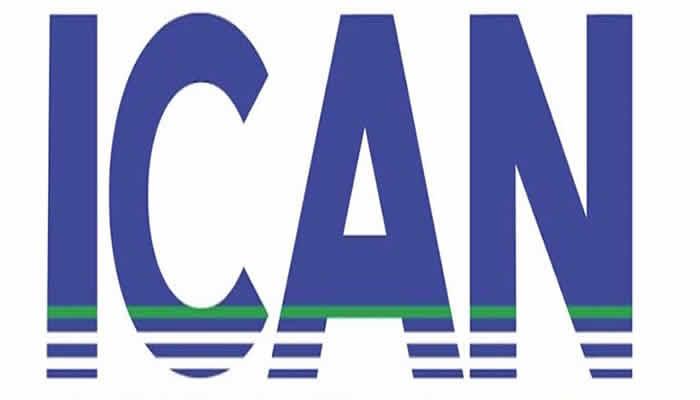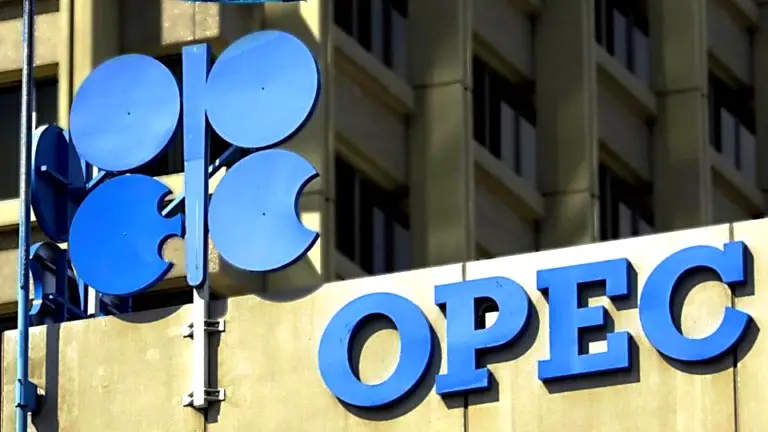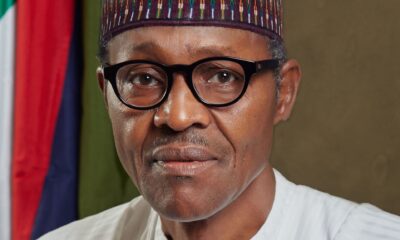Business
ICAN Identifies Five Challenges Of CBN Naira Redesign
Published
1 year agoon
By
Editor
The Institute of Chartered Accountants of Nigeria has identified five challenges that it says the Central Bank of Nigeria needs to consider following the apex bank’s naira redesign policy.
The PUNCH reports that on October 26, 2022, the CBN governor, Godwin Emefiele, announced the redesign of the N1000, N500 and N200 notes, for which it got the approval of the President, Major General Muhammadu Buhari (retd.).
The new notes are due for circulation this month (December). ICAN, in a publication by its 58th president, Tijjani Isa, on Monday, noted foreign exchange challenges, inflation and timing of the policy as some of the major issues the CBN might need to face.
ICAN highlighted the challenges the policy might face as follows:
1. Firstly, the CBN asserts that 85% of currency in circulation is outside the banking system. Given this background. ICAN would expect the CBN to perform a thorough root-cause analysis of this statistic as it appears inconsistent with recent initiatives to promote a cashless economy.
Such initiatives include the eNaira, which was launched In October 2021. In addition, there are numerous payment solutions provided by fintech companies. It would be proper for the CBN to understand why such schemes have not achieved the desired impact and link the underlying issues therein to the currency redesign policy. That way, it would be possible to monitor and evaluate the impact of the policy on the volume of currency in circulation.
READ ALSO: Naira Redesign: Buhari, Emefiele Played Nigerians, Only Changed Dye Of Currency – Sowore
Coincidentally, the CBN issued the Exposure Draft of the Guidelines for Contactless Payments in Nigeria. On October 17, 2022. ICA, and indeed all stakeholders would require the assurances of the CBN that the proposed guidelines on contactless payments would indeed make significant complementary impact to the cashless economy drive.
2) Secondly, the currency redesign policy would potentially negatively affect the exchange rate of the naira. The official exchange rate remained relatively stable at a range of N437.66/$1 to N443.26/$1 between October 26 and November 22, 2022. This seeming appearance of stability does not provide much cheer. due to the significant illiquidity in the official forex channels.
However, and unsurprisingly, the impact on the parallel market has been more profound. The naira has depreciated by approximately 10.8% from N740/$1 on October 26, 2022 to about N840/$1 on November 1, 2022 and N880/$1 on November 14, 2022.
ICAN noted that two issues were plausibly responsible for the above: (a) Businesses and individuals are reported to be searching unsuccessfully to access the US dollar for genuine needs, including the importation of critical raw materials and machinery. Even where available, the high exchange rate is already leading to increased cost of production, and hence increase in prices of goods and services.
(b) It is likely that perhaps, holders of the currency notes generated from illicit business and stored outside of the banking system are in a race to convert them to foreign currency in the parallel market. These will still avoid the banking system, but also put further pressure on the exchange rate.
3. Furthermore, year-on-year inflation rate has been on a steady rise since January 2022 to date. The all-item inflation rate rose from 15.6% in January 2022 to 20.77% as at September 2022. The food inflation rate similarly rose from 17.13% to 23.34% within the same period. ICAN is concerned about further rise in inflation rate and the cost of living.
ICAN conference: Obi, Sowore present, Atiku, Tinubu absent
4. We note that the CBN is yet to disclose some pertinent details of the currency redesign policy, such as the cost of designing and printing the new currency notes. We acknowledge however that the CBN governor has subsequently confirmed that the printing of the new currency notes will be done locally. In addition, we welcome the early launch of the redesigned currency notes by President Buhari on November 23, 2022.
5. Another area where Nigerians are apprehensive is the timing of the implementation of the policy. The existing currency notes cease to be legal tender by the end of January 2023, while the general election is scheduled to hold in February 2023. Considering the economics of our recent electoral cycles, money in circulation typically increases during the general election. There is some level of uncertainty, therefore, as to what impact, if any, the currency policy will have on liquidity during the general election.
Recommendations
ICAN recommended strong monitoring of the implementation through the deposit money banks, in order to moderate the likely impacts on inflation and exchange rates.
It also recommended closer collaboration between the CBN, the fiscal authorities (i.e the Federal Ministry of Finance, Budget and National Planning) as well as law enforcement agencies to preserve the integrity of our financial system.
It added, “Any individual and organisation found to be contravening our monetary and fiscal regulations should be prosecuted to the full extent of the law.
READ ALSO: Naira Redesign: CBN Issues New Cash Withdrawal Policy
“The CBN should pursue with renewed vigour, extant policies aimed at improving our foreign currency reserves.
“The CBN should be transparent in enlightening the public on the cost of the naira redesign implementation policy.
“The CBN should pursue vigorously the drive for cashless economy.”
ICAN added that the CBN should extend the window for withdrawal of the old currency notes, citing the yuletide season as a reason for such.
PUNCH
You may like


Naira Redesign: Farmers Ask FG For Compensation Over Losses


Edo: Traders Reject Old Notes, Residents Groan Over Buhari’s Stance On S’Court Judgement


Naira Redesign: Four Days After, Commercial Banks In Benin Yet To Comply With Supreme Court Ruling


Supreme Court Nullifies FG’s Cashless Policy, Naira Redesign


Banks Resume Receiving Old N500, N1000 Notes


Buhari Apologises Over Naira Redesign Policy
Business
CBN Gives New Directive On Lending In Real Estate
Published
2 days agoon
April 17, 2024By
Editor
The Central Bank of Nigeria, CBN, has released a new regulatory directive to enhance lending to the real sector of the Nigerian economy.
The directive, issued on April 17, 2024, with reference number BSD/DIR/PUB/LAB/017/005 and signed by the Acting Director of Banking Supervision, Adetona Adedeji, signifies a notable shift in the bank’s policy towards a more contractionary approach.
In line with the new measures, the CBN has reduced the loan-to-deposit ratio by 15 percentage points, down to 50 per cent.
This move aligns with the CBN’s current monetary tightening policies and reflects the increase in the Cash Reserve ratio rate for banks.
READ ALSO: JUST IN: CBN Gov Sacks Eight Directors, 32 Others
The LDR is a metric used to evaluate a bank’s liquidity by comparing its total loans to its total deposits over the same period, expressed as a percentage.
An excessively high ratio may indicate insufficient liquidity to meet unexpected fund requirements.
All Deposit Money Banks are now mandated to adhere to this revised LDR.
The CBN has stated that average daily figures will be utilised to gauge compliance with this directive.
Furthermore, while DMBs are encouraged to maintain robust risk management practices in their lending activities, the CBN has committed to continuous monitoring of adherence and will adjust the LDR as necessary based on market developments.
READ ALSO: JUST IN: CBN Increases Interest Rate To 24.75%
Adedeji has called on all banks to acknowledge these modifications and adjust their operations accordingly. He emphasised that this regulatory adjustment is anticipated to significantly influence the banking sector and the wider Nigerian economy.
The circular read in part, “Following a shift in the Bank’s policy stance towards a more contractionary approach, it is crucial to revise the loan-to-deposit ratio policy to conform with the CBN’s ongoing monetary tightening.
“Consequently, the CBN has decided to decrease the LDR by 15 percentage points to 50 per cent, proportionate to the rise in the CRR rate for banks.
“All DMBs must maintain this level, and it is advised that average daily figures will still be applied for compliance assessment.
“While DMBs are urged to sustain strong risk management practices concerning their lending operations, the CBN will persist in monitoring compliance, reviewing market developments, and making necessary adjustments to the LDR. Please be guided accordingly.”

The Dangote Petroleum Refinery has announced a reduction in the price of Automotive Gas Oil, popularly called diesel, from N1,200/litre to N1,000/litre.
It announced this in a statement issued on Tuesday by its spokesperson, Nduka Chiejina.
The statement read in part, “In an unprecedented move, Dangote Petroleum Refinery has announced a further reduction of the price of diesel from N1,200 to N1,000/litre.
READ ALSO: NNPP Faction Suspends Kano Governor For Six Months
“While rolling out the products, the refinery supplied at a substantially reduced price of N1,200/litre three weeks ago, representing over 30 per cent reduction from the previous market price of about N1,600/litre.
“This significant reduction in the price of diesel at Dangote Petroleum Refinery is expected to positively affect all the spheres of the economy and ultimately reduce the high inflation rate in the country.”
According to The PUNCH report, last week, oil marketers called on the refinery to reduce its diesel price, as they urged managers of the facility to sell at N850/litre.
Details later…
Business
Nigeria’s Oil Production Drops Again, Now 1.23mbpd – OPEC
Published
1 week agoon
April 12, 2024By
Editor
Nigeria’s crude oil production witnessed the second consecutive monthly decline since the beginning of this year, as it dropped to 1.231 million barrels per day in March, the Organisation of Petroleum Exporting Countries stated on Thursday.
OPEC disclosed this in its latest Monthly Oil Market Report for April 2024, stating that crude oil production details which it got through direct communication from Nigeria showed that the country pumped less oil in March when compared to what was produced in February.
Data from the report indicated that Nigeria produced 1.322 million barrels per day of crude in February this year, but this dropped to 1.231mbpd in March, representing a plunge of 91mbpd.
The report further stated that the country had produced 1.427mbpd of crude in January, but this was not sustained in February as it dropped in that month, while the southward oil production continued in March.
OPEC data, however, showed that the country’s average crude oil production in the first quarter of 2024 was 1.327mbpd, higher than the 1.313mbpd average oil production in the fourth quarter of 2023.
Nigeria’s first quarter oil output in 2024 was also higher than the 1.201mbpd average production in the third quarter of last year.
READ ALSO: Oil Production Rises 26.57m Bpd In February — OPEC
Oil theft and pipeline vandalism have dealt severe blows on Nigeria’s oil production, limiting the country’s output and making it fall below the volume approved for Nigeria by OPEC.
The PUNCH reported on Wednesday that the Nigerian National Petroleum Company Limited recorded 155 oil theft incidents in one week.
The report that stated the company revealed that during the review period, 53 illegal pipeline connections and 36 illegal refineries were uncovered in the Niger Delta.
“Between March 30 and April 5, 2024, a total of 155 incidents were recorded across several locations in the Niger Delta region from various incident sources,” the firm stated.
In a summary of the incidents, NNPCL stated that it recorded 53 illegal connections, discovered 36 illegal refineries and 32 wooden fibre boats, identified 14 pipeline vandalism cases, eight vessel infractions and four oil spills, as well as made seven vehicle and one vessel arrests.
Some of the incident sources include the Nigeria Agip Oil Company, Tantita Security Services Ltd, NNPCL Command and Control Centre, Shell Petroleum Development Company, NNPCL 18 Operating Ltd, among others.
READ ALSO: Oil Drops Further After OPEC Delay With Asian Stocks Mixed
Providing additional details, the company said, “In the past week, 32 wooden boats conveying stolen crude and illegally refined products were seized and confiscated in Rivers and Delta states.
“On land, seven vehicles loaded with stolen crude were arrested in Imo, Delta and Rivers states. 53 illegal connections were uncovered between March 30 and April 5, 2024 in Bayelsa, Rivers and Delta states.
“14 cases of vandalism were also recorded in Rivers, Bayelsa and Delta states, while illegal storage sites where stolen crude and illegally refined products are kept were uncovered in Akwa Ibom, Bayelsa, Rivers and Delta states.”
The national oil company also stated there were clusters of illegal refineries in Abia State, as activities of oil thieves had devastated the effected environments in the state.
It said 36 clusters of the illegal refineries were discovered in the past week across several locations in Rivers and Abia states.
“Four cases of oil spills due to activities of vandals were recorded in the past week,” NNPCL stated, adding that in Rivers State, oil leaks from a wellhead is destroying aquatic lives.
NNPCL stated that 38 suspects were arrested during the week under review, stressing that the national oil company would not back down on the war against crude oil theft until the menace is eradicated.
READ ALSO: OPEC Cuts Nigeria’s Oil Output By 20.7% To 1.38 mb/d
Nigeria has been losing trillions of naira to crude oil theft, a development that has made some international oil companies to divest from onshore to deep offshore oil fields, while others have exited the country.
In November 2023, for instance, The PUNCH reported that the Federal Government revealed that more than N4.3tn worth of crude oil was stolen in 7,143 pipeline vandalism cases within a period of five years.
The report stated that the government disclosed this at the Nigeria International Pipeline Technology and Security Conference in Abuja, with the theme, ‘Bolstering Regulations, Technology and Security for Growth.’ The conference was organised by the Pipeline Professionals Association of Nigeria.
In a presentation at the conference by the Nigeria Extractive Industries Transparency Initiative, a Federal Government agency, the organisation revealed that oil theft and losses in Nigeria had become a national emergency.
The Executive Secretary, NEITI, Ogbonnaya Orji, said oil theft was an emergency that posed serious threat to oil exploration and exploitation with huge negative consequences on economic growth, business prospects and profit earnings by oil companies.
Providing data from the agency’s reports to back his claims, he said, “NEITI disclosed that in the last five years, 2017 to 2021, Nigeria recorded 7,143 cases of pipeline breakages and deliberate vandalism resulting in crude theft and product losses of 208.639 million barrels valued at $12.74m or N4.325tn.
“NEITI reports also disclosed that during the same period Nigeria spent N471.493bn to either repair or maintain pipelines.”
PUNCH

Grammy Winner Found Dead In Her Apartment

UNIOSUN Appoints First Female Registrar In 18 Years

Alaafin: Kingmakers Appeal As Court Strikes Out Case Against Makinde
Trending

 Metro5 days ago
Metro5 days agoJunior Pope: Photos From Funeral Of Makeup Artiste, Abigail Frederick

 Metro3 days ago
Metro3 days agoTwo Soldiers Arrested For Allegedly Stealing Armoured Cables At Dangote Refinery In Lagos

 News5 days ago
News5 days agoBREAKING: APC Suspends National Chairman Ganduje

 Headline4 days ago
Headline4 days agoUS-based Nigerian Bodybuilder Dies 18 Days After Being Shot By Wife

 Headline3 days ago
Headline3 days agoB-I-Z-A-R-E: Woman Wheels Dead Uncle’s Corpse Into Bank To “Sign Off” Loan In Her Name [VIDEO]

 News4 days ago
News4 days agoBREAKING: FG Begins Disbursement Of N200bn Palliative Loans

 Headline4 days ago
Headline4 days agoBill: MP Punched In The Face As Georgian Politicians Fight Dirty In Parliament [VIDEO]

 Metro4 days ago
Metro4 days agoTransformer Vandal Met Waterloo, Electrocuted In Benin

 Metro3 days ago
Metro3 days agoDouble Tragedy As Man Punches Relative To Death During Father’s Burial

 News1 day ago
News1 day agoAPC Debunks Viral Video, Says Presidency Not After Ganduje






























